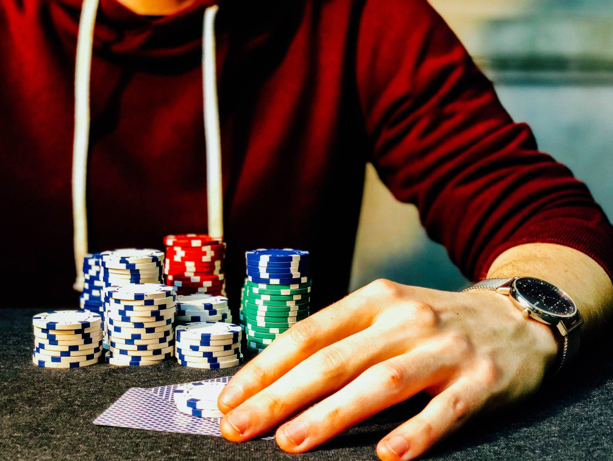Is Crypto Trading a form of Gambling?
Crypto trading is fundamental to the blockchain-triggered financial revolution we’re living through. But for the untrained eye, it’s only a gamble. Trading and betting share some similarities, but they’re only apparent, as you’ll discover by reading our article.
First, let’s take a look at the reasons behind this analogy.
Taking a chance in crypto trading vs gambling
The main resemblance of gambling and trading crypto is that they are speculation-driven enterprises. In other words, they imply trying to figure out and profit from what may happen in the future. Any trade represents a bet on the relevant crypto going up and its success depends on the research backing it.
So, crypto trading could hardly be associated with slot gambling, due to the purely random nature of the latter. However, you could liken it to skill-based games like poker or blackjack. Here, the ability to make choices without having all the data at hand is key.
An in-depth comparative analysis singles out four key similarities between gambling and crypto trading:
- Exposure to uncertainty
- Risking money
- The hope of making a quick buck
- The application of strategies and use of statistics
But investing in a volatile new coin is not entirely the same as going all-in on roulette or blackjack. A gambler essentially operates in a centralised environment, while crypto trading happens in a decentralised monetary system.
In other words, the gambler’s chances may be directly affected by the casino, while the trader’s success depends largely on their own wit and the market movements outside anyone’s control.
Attaining the trader’s edge
The risk intrinsic to cryptos can, at least in theory, be averted to some degree by opting for stable coins and carefully managing your budget. Your trader edge depends on how well you devise your strategy to account both for the coins’ relevance and your financial capacity. It also relies on your discipline.
Nobody can teach you a fail-proof way to determine cryptos’ stability, because that depends on an ever-changing factor: its real-world utility. Assessing this variable can be a little tricky, and if you’re not up for analysing company fundamentals, crunching numbers and learning from past mistakes, you won’t be able to optimise your plan accordingly.
In practice, traders who don’t take real-life relevance into account indeed take a gamble. Choosing where to invest only after studying a coin’s price graph or social media trends won’t take you very far away.
But in an industry that’s so open-ended, there’s no other way to acquire the edge but by trial and error. So, crypto traders face a paradox. They need to minimise risk through careful research and investment choices, but any choice could be proven wrong the next minute.
Gambling and short-term speculation
You probably start to see there are fundamental differences between betting and trading. The first that comes to mind is that trading cryptocurrencies is not a casual short-term game, but a process of long-term investment.
Granted, gambling professionals may consider themselves as investors with a positive ROI. But those who can make a living playing poker, blackjack are the exception, not the rule.
Casinos have a built-in edge over players that will undoubtedly keep unnerving the great majority of them. Even if you manage to bypass the house edge once or twice, the casino runs the show and won’t give in that easily.
Casinos banning pro-players
Let’s take blackjack for instance. A sound strategy drops the house edge to as low as 1%, making it a somewhat risky game for operators. History has proven it to be so. Several profit-minded gamblers have managed to crack the game’s code through the mathematics of card counting.
Australian gambler Zeljko Ranogajec quit his job to earn exponentially more playing the game. And the MIT Blackjack Team, famously depicted in the movie ‘21’, is estimated to have won more than $50 million with a similar counting method.
But casinos fought back and put their winning streaks to an end. Both Ranogajec and some members of the MIT team got banned, and card counting is now considered cheating.
That’s a clear representation of the top-down nature of gambling. Players try to win while operating in a closed environment against the ones who make the rules and have the last say.
Comparatively, the crypto market cannot be reduced to this dynamic, since it is always subject to external, real-world, influences. Moreover, for traders who adopt a long-term outlook, it’s never about winning or losing in the now. They’re not looking to hit a once-in-a-lifetime jackpot, but access a form of steady income.
Trading crypto: investment or gamble?
Generally, people tend to consider trading as a form of gambling, but that’s understandable given that the subject is not an integral part of the financial education most of them get.
But digital currencies have divided even the world’s rich, from whom we’d expect to show more openness toward such a financial revolution.
While the younger tend to advocate for digital currencies, billionaires like Warren Buffet and Mark Cuban express doubts regarding their safety as investment options. Elon Musk has expressed mixed feelings about it as well, although he praised Bitcoin’s structure as ‘brilliant’.
Based on what we’ve presented so far, it should be clear that digital investments are only similar to gambling at the surface level.
Here’s another way to put it. Whether crypto trading is more like investing or gambling depends on the trader’s ways of conducting their business. In that vein, you could say that a crypto trader is more of a gambler when they:
- Do not have a long-term strategy
- Dream of becoming rich overnight
- Treat each trade as their last
- Do not prepare for worst-case scenarios
- Do not perform extensive research prior to investing
- Only follow ‘hot’ coins spoken of in the media
Flip that around and you’ll get an image of what a proper trader should look like.


